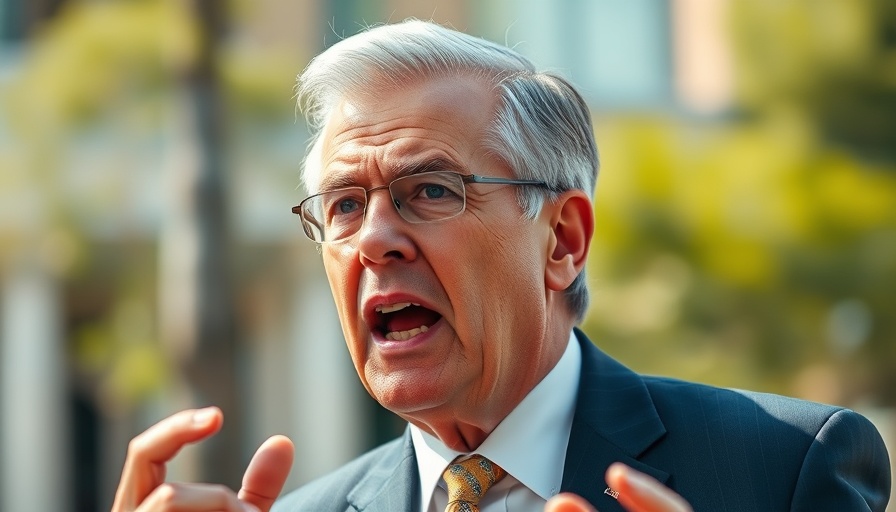
Trump Faces Tough Questions Amid Business Deal Criticism
Donald Trump is no stranger to controversy, and during a recent press interaction, that became evident once again. An Australian journalist, John Lyons, from the ABC, posed a probing question about Trump's financial status post-presidency, specifically asking how much wealthier he had become since returning to the White House in January. Trump's response was as fiery as ever, asserting that the journalist was 'hurting Australia very much' by asking such a question.
Context Matters: Exploring Trump’s Business Ventures
This interaction unfolds against a backdrop of heightened tension between the United States and Australia following a review of the Aukus deal—a significant submarine agreement valued at £176 billion. Trump's apprehension about discussing his business dealings while in office relates not only to his finances but to broader implications for international relations. The scrutiny of Trump's business returns could raise questions about potential conflicts of interest and the ethical dilemmas of mixing politics with personal gain.
Understanding the Importance of Press Freedom
Lyons maintained his position, arguing that he was merely performing his duty as a journalist by asking questions that are crucial for understanding the relationship between Australia and the United States. Press freedom is a cornerstone of democracy, allowing journalists to seek accountability from public figures, particularly those in positions of power like Trump. This raises the critical question: what is the role of the media in holding politicians accountable for their business dealings?
Future Trends: The Impact on U.S.-Australia Relations
As Prime Minister Anthony Albanese looks forward to an upcoming meeting with Trump amid this growing tension, the diplomatic landscape may be at a crossroads. With the backdrop of potential tariffs on Australian exports and scrutiny over the Aukus review, the ramifications of Trump’s recent comments could have lasting effects on trade relations between the two nations. If these tensions continue to escalate, future collaborations and agreements could be impacted.
Reactions from Both Nations: How Will Citizens Respond?
John Lyons’ experience highlights the challenges journalists often face from political figures resistant to accountability. Citizens in both the U.S. and Australia rely on honest dialogues to understand implications for their governments' dealings. While Trump dismissed questions as ‘provocative,’ they are indeed integral to nurturing transparency, a sentiment echoed by many concerned citizens. Engagement in these topics reflects the importance of informed communities that can advocate for fair treatment in international relations.
Emotional Underpinning: The Stakes of Media Relations
For many working-class Australians and Americans, international relations are not just a matter of national pride; they directly affect everyday lives, trade jobs, and economic prospects. Journalists like Lyons serve as the bridge between the governments and the public, and their inquiries can either fortify or strain these critical relationships. Emotions run high as citizens gauge their leaders' responses to legitimate concerns that could weigh heavily on national morale.
Conclusion: Time to Reflect on National Relations
The exchange between Trump and Lyons underscores a critical moment in international journalism and diplomatic relations. As citizens, we should remain engaged with the evolving narrative, recognizing the importance of media inquiries in shaping the global landscape. As discussions proceed between Trump, Albanese, and their respective governments, staying informed through reliable news sources will ensure that we, as stakeholders, can better understand and influence the future of U.S.-Australia relations. If you want to stay updated on breaking international news, consider subscribing to a world news live stream or checking reliable international news websites regularly for the latest global news.
 Add Row
Add Row  Add
Add 




Write A Comment